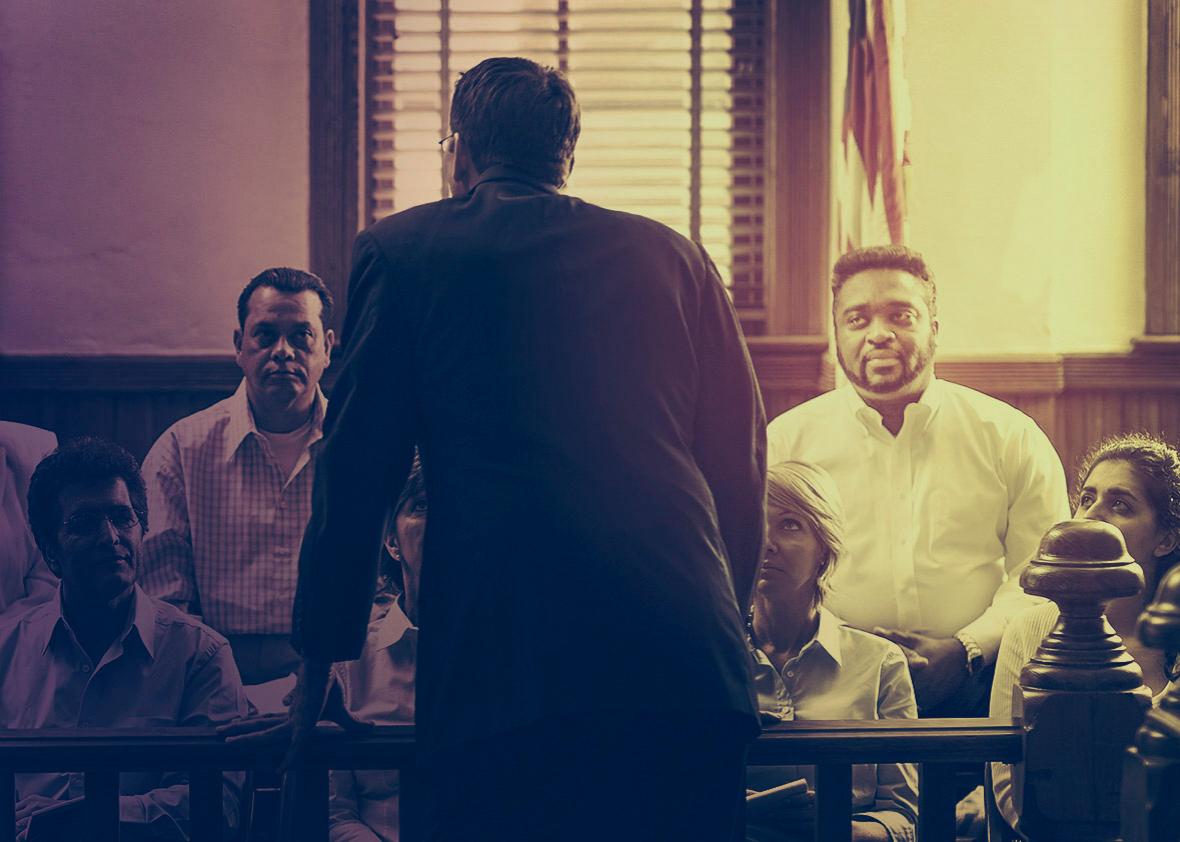Three decades ago, the Supreme Court ruled in Batson v. Kentucky that race cannot be a determining factor in the process of jury selection. But because it’s so difficult to know what is really motivating prosecutors and defense attorneys to strike potential members of a jury pool, Batson has proven very hard to enforce.
Last week, the Supreme Court heard arguments in Foster v. Chatman, a case in which the paper trail strongly suggests that race was a factor in the dismissal of potential jurors. On the latest Amicus podcast, host Dahlia Lithwick spoke with Stephen Bright, president of the Southern Center for Human Rights and lead counsel for the convicted murderer at the center of Foster.
Here’s an excerpt from the conversation:
Lithwick: Can you just put yourself in the head of a prosecutor for a minute, and explain to me why they are so confident that striking black jurors is a smart initial move, and that it’s worth going through the contortions of justifying it later. Why is there such a deep, deep tradition, particularly in the South, of just saying, “We’re going to default to all-white juries”?
Bright: Well, I think what happened in this case is what happens so often—that people are just not treated as individuals but put in groups. I mean, the prosecutors said at one time, “This woman had the most potential of all the blacks in the jury pool,” as opposed to just treating her like one of many people—50 people—in this pool from which the jury was selected. I think in this case, the prosecutors wanted the death penalty. They argued to the jury to give the death penalty, to deter people in the projects, which were 90 percent African-American.
It is less likely that that appeal and getting the death penalty—at least the prosecutors figured—if they had African-Americans on the jury.
Now I think what Batson teaches is that you just have to accept people, without regard to race. If the jury decides not to impose the death penalty, you have to accept that. But I think when you’ve got young, ambitious prosecutors—as both these prosecutors were—they want to win at any cost.
And if the cost is to strike all the blacks so that you have an all-white jury that’s more likely to impose the death penalty, that’s what they’re going to do.
Lithwick: Steve, it strikes me, listening to you talk, that there’s such a common thread in so many of the kind of race doctrines we talk about on this show. And the thread is, look, we can’t really search your heart. We don’t know, at the end of the day, what’s going on, but just don’t be obvious, right? Don’t be ugly about it. We see that in the affirmative action cases. We’ve seen that in so many strains of constitutional law.
It feels like, at the end of the day, the Supreme Court at Batson said, “Just don’t be yucky about being racist. If you’re going to be racist, just do it quietly.” Certainly, it seems that the takeaway of Foster is, if you’re going to be racist, don’t put it on paper with the green highlighter. It seems like a very, very short-sighted and kind of naive view of how to combat entrenched racial discrimination in this country.
Bright: Oh, it certainly is. We’ve had a lot of attention in the country lately to relationships between law enforcement and communities of color. What there’s been too little attention to, in my opinion, is, what happens to those people once they get in the criminal justice system—whether they’re accused of a minor crime, or whether accused of a crime that carries the death penalty? There are all these discretionary decisions, from whether to grant bail, what to charge, what plea offer to make—if there’s plea bargaining in the case—and 95 percent of all cases are resolved with plea bargains and the striking of the jury.
You have to remember, 95 percent of all prosecutors in this country—the chief prosecutors—are white. So, the criminal justice system does not reflect the society, and the decisions in these cases that have a tremendous effect on communities of color and are really destroying people, families, and communities. These decisions are mostly being made by white people and mostly white men.
Listen to the full episode in the player below:
Subscribe in iTunes ∙ RSS feed ∙ Download ∙ Play in another tab
